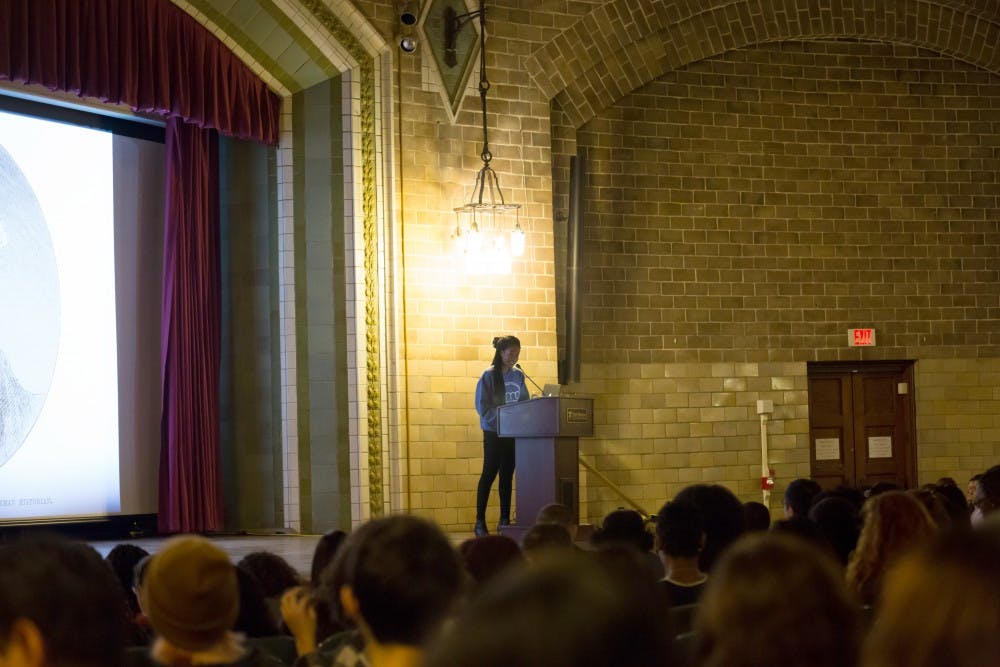
New York Daily News journalist Shaun King spoke at UMC’s Unity Month about reasons behind the election results and possible steps forward.
Credit: Natalie KhanNew York Daily News journalist Shaun King attempted to explain the outcome of the presidential election to a full Harrison Auditorium on Nov. 17. King was the keynote speaker of the United Minority Council’s Unity Month.
“I was trying to give some clarity and context for where we are, how we got here and where to go next,” King told The Daily Pennsylvanian. “When you don’t have clarity, it’s easy to be hopeless.”
In his lecture, he referred to historian Leopold von Ranke for providing this “clarity.” In the mid-nineteenth century, von Ranke made the first modern timeline of history to see if humanity had improved over time, he said. The timeline showed that although technology progresses, the quality of humankind rises and falls.
“Sometimes humanity is great and sometimes humanity sucks,” King said.
King said people are currently in a “dip,” a low point in the status of humanity. He said that while President-elect Donald Trump did not cause this dip, he reflects it.
Dips often come in response to innovations, King said, and Trump could only have been elected if we were in that low place already.
Again, he cited historical events to justify this assertion. After slavery ended and President Lincoln issued the Emancipation Proclamation, the KKK formed. After the United States elected its first black president, Barack Obama, hate groups and hate crimes grew in number, he said. After this, he said, Trump ran for president, and his campaign slogan appealed to the worst in people.
King’s words resonated with School of Social Policy and Practice student Jess Soriano.
“In this time it’s easy to feel isolated,” she said. “That explanation has given me some peace.”
King looked to racial tension to illustrate our current “dip.” He stated that last time 102 unarmed black people were killed in one year, before last year, was in 1912.
He showed videos of police brutality towards black people. In one video, police were attacking unarmed black children coming from a swimming pool in an affluent suburb of Dallas and who had not committed any crime.
King paused the video on the image of a calm-looking white man standing near a black boy whose hands were behind his back.
“Why is he so calm?” King asked of the white man. “He just knew he was okay.”
College junior Jocelyn Afadapa said she appreciated hearing the “backstory” behind this video, referring to “things we don’t see on CNN.”
College sophomore Justina McMinn described King’s lecture as important for those with an “outsiders’ point of view,” that is, those who are not affected by the issues he discusses.
College sophomore Malika Okech said she attended the speech to hear from a social media presence who also acts on his words so she could learn how to make positive change after recent events.
King advocated for “hyper-local” action — for example, turning Penn into a “sanctuary college” or Philadelphia into a “sanctuary city.”
He encouraged people to have two issues for which they fight — one with direct effect and one without, but for which they fight just as hard.
King’s speech ended with a hopeful message.
“At every dip in American history, we have always found our way out,” he said.
The Daily Pennsylvanian is an independent, student-run newspaper. Please consider making a donation to support the coverage that shapes the University. Your generosity ensures a future of strong journalism at Penn.
Donate



